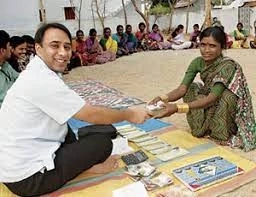Microfinance has been instrumental in empowering women and promoting gender equality by providing them with access to financial resources and opportunities that were historically denied to them.
The significant role of microfinance in women's empowerment and fostering financial independence is evident in several key areas:
Increased Economic Participation: Microfinance enables women to actively participate in economic activities by providing them with financial resources to start or expand small businesses. With access to microloans, women can invest in income-generating ventures, such as handicrafts, agriculture, or retail businesses, allowing them to contribute to their households' income and the overall economy.
Entrepreneurship Promotion: Microfinance supports women entrepreneurs in realizing their potential and turning their ideas into viable businesses. By providing small loans and financial training, microfinance institutions empower women to become business owners, fostering entrepreneurship and innovation.
Financial Inclusion: In many societies, women have limited access to formal financial services due to cultural norms and traditional gender roles. Microfinance breaks down these barriers by offering financial products designed to meet women's specific needs, such as flexible repayment terms and smaller loan sizes.
Control Over Financial Resources: Access to microfinance gives women greater control over their financial resources. As women often prioritize family and community needs, their economic empowerment through microfinance can lead to improved household decision-making and better allocation of resources.
Enhanced Decision-making Power: Economic empowerment through microfinance can boost women's confidence and self-esteem. With financial independence, women are more likely to have a say in household decisions, education choices for children, and other important family matters.
Women's Rights Advocacy: Microfinance institutions often collaborate with women's rights organizations and NGOs, promoting gender equality and advocating for women's rights in society. Microfinance initiatives reinforce the importance of women's economic and social roles, challenging traditional gender norms.
Education and Health Improvement: As women gain access to financial resources, they can invest in their own education and healthcare, leading to improved personal well-being and contributing to the development of their communities.
Microfinance for Vulnerable Women: Microfinance can be especially impactful for vulnerable women, such as single mothers, widows, or those affected by conflicts or natural disasters. It serves as a safety net and a means for these women to rebuild their lives and provide for their families.
Networking and Support: Microfinance often involves group lending models where women come together to form self-help groups. These groups provide a supportive environment for women to share experiences, exchange ideas, and collectively address challenges they face.
Breaking the Poverty Cycle: Women's economic empowerment through microfinance can break the cycle of poverty in families and communities. When women are economically empowered, they are more likely to invest in their children's education and health, leading to better future prospects for the next generation.
In conclusion, microfinance plays a significant role in empowering women, promoting gender equality, and fostering financial independence. By providing financial resources, support, and opportunities, microfinance enables women to overcome socio-economic barriers and become active contributors to their families and communities, leading to positive societal changes and greater gender equity.


